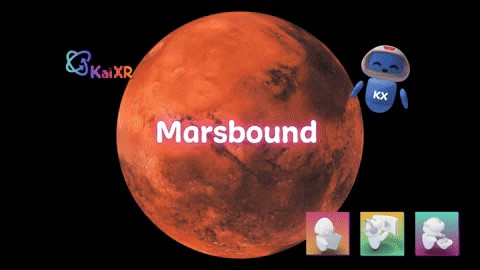When you think about career planning, elementary school might not be the first thing that comes to mind. However, research shows that career awareness begins as early as ages 9-10. Introducing Career Development Programs In Elementary Schools can significantly impact a child’s future success. These programs help students discover their passions, explore various career paths, and develop essential skills for future employment.
A Kai XR Learning Adventure on Aerospace Engineering
The Importance of Early Career Exploration
Career development programs in elementary schools offer numerous benefits. They help children:
- Develop Self-Awareness: Understanding their strengths, weaknesses, and interests allows students to identify potential career paths aligned with their unique abilities.
- Explore Career Options: Exposure to diverse professions broadens students’ horizons and helps them understand the connection between education and future careers.
- Build Essential Skills: Activities like problem-solving, teamwork, and communication exercises cultivate crucial skills needed in any workplace.
- Contextualize Learning: Career exploration makes academic subjects more relevant by demonstrating their practical application in real-world scenarios.
- Foster a Growth Mindset: Early exposure to career possibilities encourages a belief in lifelong learning and the ability to adapt to a changing job market.
Research indicates that self-concept starts developing in elementary school. By incorporating the National Career Development Association (NCDA) guidelines focusing on self-knowledge, education and occupational exploration, and career planning, elementary schools can nurture a student’s self-awareness and lay the groundwork for informed career decisions.
Building a Foundation for Skill Development
Career development programs also provide a strong foundation for skills development. Elementary school is a critical time for developing foundational skills, and integrating career exploration can enhance this process:
- Connecting Skills to Careers: Students learn how specific skills, such as math, reading, and writing, are utilized in various professions.
- Developing 21st-Century Skills: Programs often incorporate activities that promote critical thinking, collaboration, creativity, and communication – essential skills for success in the modern workplace.
- Promoting Social-Emotional Learning: Career exploration activities can facilitate the development of crucial social and emotional skills, like empathy, teamwork, and self-management.
.png)
Step into the shoes of a biochemist!
Implementing Career Development Programs
Effective implementation of career development programs requires a multi-faceted approach:
-
Exposure to Diverse Careers: Field trips, virtual field trips, guest speakers, and community involvement provide real-world insights into various professions. Virtual field trips offer cost-effective and engaging alternatives to traditional field trips, expanding access to a wider range of career options.
-
Modeling Curiosity: Educators can foster a culture of curiosity by asking open-ended questions, encouraging exploration, and demonstrating their own enthusiasm for learning.
-
Transparency about the Process: Clearly outlining the stages of career development – from awareness and research to planning and skill building – helps students understand the long-term nature of career preparation. This includes discussions about career awareness, research, planning, credential building, job searching, interviewing, and continuous professional development.
-
Leveraging Play: Games, simulations, and hands-on activities make learning engaging and encourage active participation. Makerspace classrooms, equipped with tools like Arduino and Raspberry Pi, offer opportunities for students to develop valuable STEM skills through playful exploration. Incorporating metaverse games can further enhance engagement and expose students to cutting-edge technologies.
Makerspace Challenge: Design a Bridge like a Civil Engineer
Conclusion
Investing in career development programs in elementary schools is an investment in the future. By providing early exposure to career options and fostering essential skills, we empower students to make informed decisions and pursue fulfilling careers. Platforms like Kai XR offer innovative resources to enhance these programs, leveraging immersive technologies and engaging activities to make learning fun and impactful. Early career exploration ignites a passion for learning, equips students with essential skills, and sets them on a path towards a successful future.

